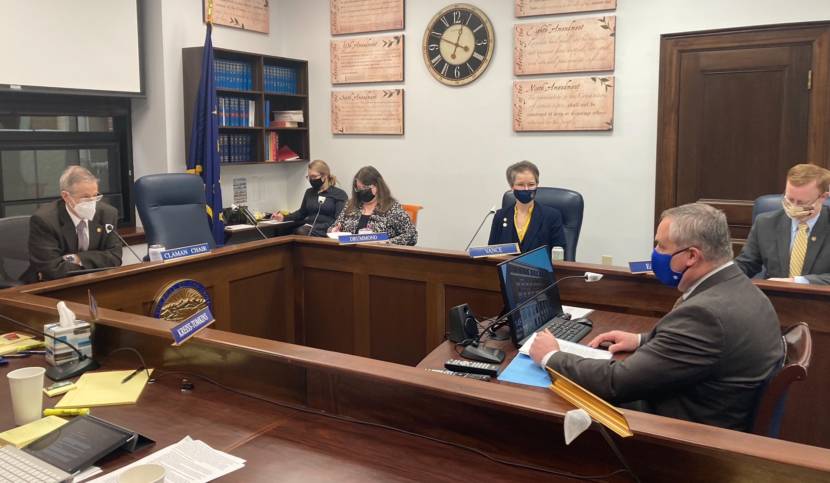
During his confirmation hearing on Monday, Treg Taylor said his first priority as Alaska’s attorney general is to end the state’s position as the worst for sex crimes.
“I truly believe that until this scourge is rooted out, and our mothers, wives, sisters and children feel protected and safe, we are hobbled as a state,” Taylor said.
He noted that the Department of Law’s budget request includes 10 new prosecutors and nine new support staff that would focus on sex crimes. He said this would allow prosecutors to focus more attention on each case. And he expressed an interest in holding a summit to discuss other ideas on how to reduce these crimes.
Taylor also said he would work to ensure that Department of Law workplaces feel safe and are free of harassment.
House Judiciary Committee members expressed disappointment with the amount of time it took for former Attorney General Kevin Clarkson to face consequences after sending 558 texts to a junior state employee in March 2020. Clarkson resigned in August when the Anchorage Daily News and ProPublica reported on the behavior.
Taylor said “good people sometimes do bad things.”
“I know Kevin very well and he’s a good friend of mine and I know him to be an honorable man,” Taylor said. “He himself would be the first to tell you that he is extremely embarrassed about what had occurred and what had happened and that it was inappropriate in the workplace.”
Sitka Democratic Rep. Jonathan Kreiss-Tomkins said he wouldn’t describe Clarkson’s behavior as at all honorable, nor would he say that Dunleavy’s office responded decisively.
Taylor also discussed how he would approach the ethics case of Ben Stevens, Gov. Mike Dunleavy’s former chief of staff, who recently left the administration to become a vice president for ConocoPhillips Alaska.
A state law prohibits former executive branch officials from working on issues they dealt with in state government for two years after they leave their jobs. The law requires waivers from this prohibition in cases where it wouldn’t harm the public interest. ConocoPhillips has said it doesn’t plan to have Stevens work on issues he worked on in the governor’s office.
Taylor said he expects Stevens to bring individual instances where he’s working in his new job on an issue he worked on in government to the Department of Law’s attention.
“If he encounters a question in his mind, he knows that he can contact the Department of Law any time within the next two years, and speak with our ethics attorneys on whether or not a waiver is needed in that specific situation,” Taylor said.
Committee chair Matt Claman, an Anchorage Democrat, expressed concern that Taylor would rely on Stevens to make the call.
“Isn’t it really not what Mr. Stevens thinks, but what the state thinks Mr. Stevens’ involvement was, in making a decision like that?” Claman said, citing the possibility of Stevens lobbying against an oil tax increase as an example.
Taylor said that if the state is aware of a potential ethics law violation, it would notify Stevens that he must stop working on an issue until he applies for a waiver.
The Alaska Public Interest Research Group has said Stevens’ exit circumvents the state’s ethics laws.
Taylor said he doesn’t plan to rely on blanket ethics waivers in the future, as has been the state’s practice in past cases.
The hearing ended with a discussion of the state’s recent string of legal defeats in major cases. Taylor said there were good legal arguments for each case, but whether he would have advised pursuing the cases is another matter. He said he is hopeful that the state won’t have a similar string of losing cases under his leadership.
The committee didn’t finish its confirmation hearing on Monday and plans to continue it, possibly as soon as later this week.



